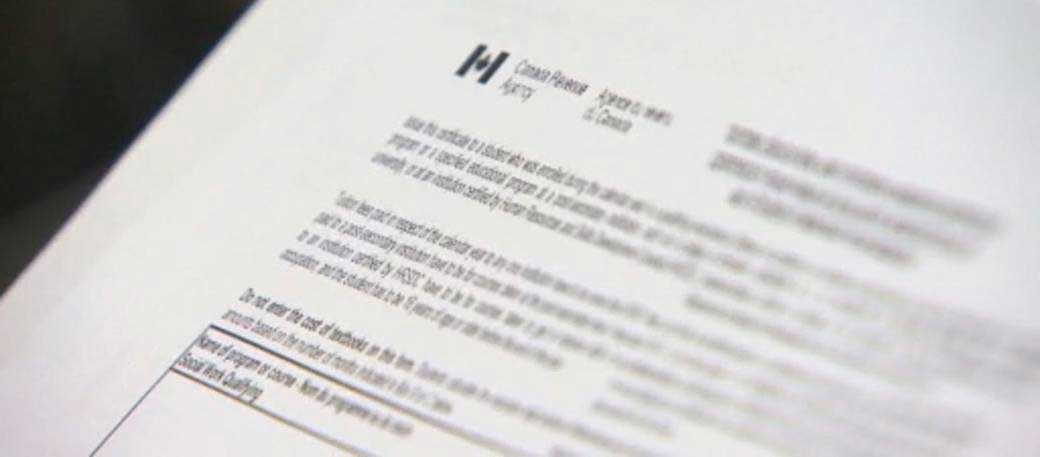
Even in the warped reality of the COVID-19 pandemic, Canadians must file their taxes to receive many of the benefits they’re entitled to. Around two million people could face interruptions to some federal and provincial payments if they wait too long to send in their 2019 tax returns, the Canada Revenue Agency warns.
“The CRA recognizes that in the current COVID pandemic environment it’s imperative for benefits to continue without disruption to Canadians,” says Heather Daniels, director-general of the Benefit Programs Directorate at the CRA.
But some Canadians will face payment delays if the CRA can’t process their 2019 returns before the beginning of September, Daniels notes.
Amid the novel coronavirus pandemic, Ottawa pushed the deadline for most individuals to file taxes from April 30 to June 1 while telling Canadians they had until Sept. 1 to pay any taxes owing without facing interest or penalties. (The tax-filing deadline for self-employed Canadians, however, remained June 15.)
Things to know when filing taxes during coronavirus pandemic
Even those who missed the postponed tax cutoff wouldn’t be immediately penalized, the federal government said. Canadians who’d been receiving the Canada Child Benefit (CCB) and the Goods and Services Tax/Harmonized Sales Tax (GST/HST) credit, for example, would continue to get payments until September 2020 even if they missed their filing deadline.
The CCB is a tax-free monthly benefit for eligible families with children under 18 years of age, while the GST/HST credit is a quarterly payment for low-income Canadians. Both are tax-free and may include payments from provincial and territorial programs.
Canadians, including those with no income, must file taxes in order to access credits such as the GST/HST tax credit and benefits like the Canada Child Benefit as well as the Old Age Security pension and the Guaranteed Income Supplement.
For late-filers, the CRA has been using 2018 tax-year information to calculate the CCB and GST/HST credit amounts for July, August and September, according to Daniels. But those payments could stop in October if the CRA doesn’t receive your 2019 return by early September, the CRA warns.
As of July 1, the CRA had yet to assess the 2019 tax files of some two million CCB and GST/HST credit recipients, Daniels tells Global News. That’s approximately 13 per cent of the 15 million Canadians who were eligible for those benefits based on their 2018 returns, she adds.
Daniels urges Canadians who haven’t done so yet to file their 2019 taxes electronically and sign up for direct deposit to ensure faster processing of tax refunds and avoid any interruption in benefit payments.
“I do worry that if people wait until the end of August to file — and they file on paper — there may be an issue,” she says.
In mid-May, the CRA warned of the probability of “significant delays” for paper filers due to “reduced staff onsite to support physical distancing.” Currently, however, CRA tax centres are working “at full capacity” processing paper returns, according to Daniels.
Source: Erica Alini, Global News July 21st, 2020.
Newsletters
e-Newsletter – June 2018
NewslettersEvents & SponsorshipArticles & Publications
e-Newsletter – May 2018
NewslettersEvents & SponsorshipArticles & Publications
e-Newsletter – April 2018
NewslettersEvents & SponsorshipArticles & Publications
e-Newsletter – March 2018
NewslettersEvents & SponsorshipArticles & Publications
e-Newsletter – February 2018
NewslettersEvents & SponsorshipArticles & Publications
Events & Sponsorship
No Results Found
The page you requested could not be found. Try refining your search, or use the navigation above to locate the post.
Articles & Publications
Have Unfiled Tax Returns For Years?
Do You Have Unfiled Tax Returns For Years? As for the record, the CRA wants you to file and pay your taxes on time every year. When you cannot do so, you may put yourself at risk of high penalty amounts and collection tasks like bank levies or wage garnishments. We at...
Old Age Security One-Time Payment Only
Old Age Security One-Time Payment Only. You will receive the one-time payment for older seniors if you were: born on or before June 30, 1947, and eligible for the Old Age Security pension in June 2021 If you have applied for the Old Age Security pension but have not...
CRA Notice of Objection
CRA Notice of Objection (NOO) Once you file your taxes, you receive a Notice of Assessment and later a Notice of Reassessment. You have two options: Pay the taxes owing File a CRA Notice of Objection (NOO). The CRA is not always right; when you disagree, you can...
All You Need to Know About Trust Funds in Canada
All You Need to Know About Trust Funds in Canada A trust is a vehicle for holding and passing on the family property. As such, it typically serves at least one of two purposes: It can reduce a family's taxes by shifting income to members in lower tax brackets, and it...
Non-Resident Canadian Tax Clearance Certificates
People who are not Canadian Residents for Tax Purposes may be subject to a withholding tax when they sell Canadian property. All non-resident Canadian for tax purposes may be subject to this withholding tax if they sell real estate in Canada. This holds if they own...